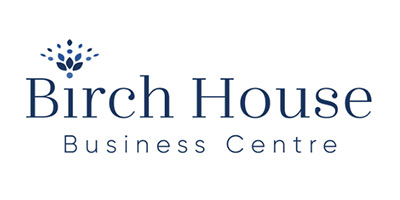Each week I could see my skills growing, from planning and measuring to arranging flowers with confidence.


For facilitators, making Maths enjoyable was key, and participant feedback revealed we had certainly excelled in that. The aim of the project was developing maths skills and concepts through a range of creative and engaging courses involving floristry, outdoor forest skills, home makeovers, planning a dream business, maths bingo and paint by numbers.
Project funded by
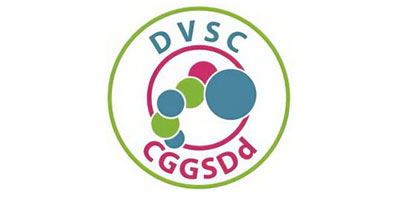
‘Breakfast Bingo’ proved to be an engaging and effective way of building confidence in mental maths whilst having fun. The excitement of bingo paired with maths basic calculations, percentages, decimals, fractions, square numbers, and multi-step problems was a novelty for our group.
Shilpa read out a maths question, and the answer was the number to look for on the ticket. Calculators were off-limits, which strengthened their ability to think fast and trust their own skills. Calling out answers created a positive atmosphere, so mistakes were part of the game.
With the added motivation of small prizes, the sessions turned maths into something enjoyable, empowering, and confidence-boosting. Oh yeah, the free breakfast was a much needed after the winner shouted ‘house.’
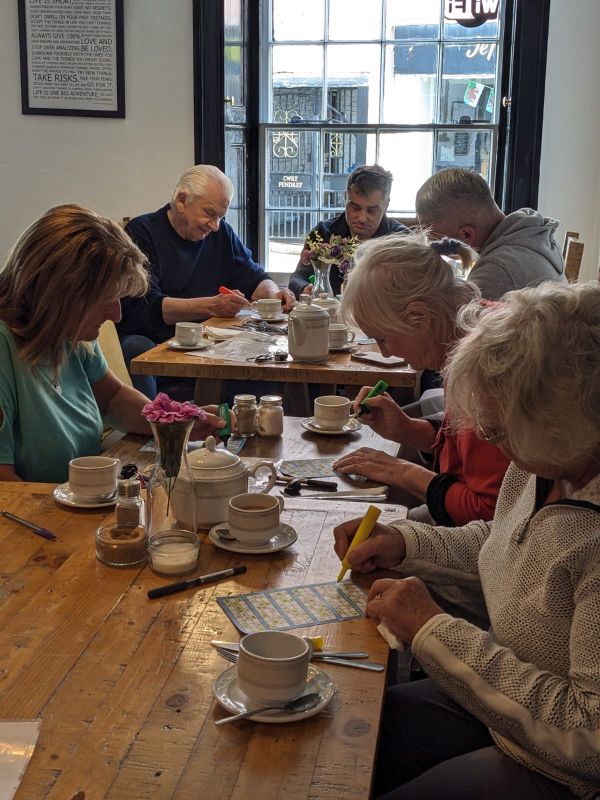
The business workshops gave attendees the chance to build real-life money skills in a practical and supportive way.
Each week we focused on a chosen financial topic, and used materials from Barclays Life Skills. Sessions covered everything from basic calculations and comparing prices for best value to budgeting through a fun game, planning and costing an event, and exploring banking, loans, and interest rates. Participants also tackled tax calculations, learned to read wage slips, and discussed pensions and student loans.
Both mental maths and calculator skills were used, helping everyone feel more confident with everyday numbers. By working in small teams, attendees were encouraged to share their ideas and approaches, discovering that there are often many ways to solve a problem.
This teamwork not only strengthened understanding but also built trust, communication, and confidence in handling financial decisions together. The key outcome was learning through collaboration.
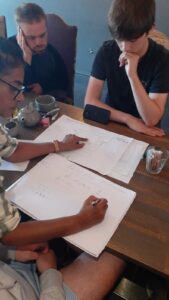
Jez delivered the Maths Makeover sessions and showed us how useful numbers can be in everyday life by linking maths to home decorating. Each week built on the last, starting with drawing and reading floorplans, then moving on to calculating carpet costs, working out wall coverage for paint, and comparing prices for curtains.
Along the way, participants practiced using maths, measuring equipment, explored imperial and metric units, and learned how to calculate percentage differences. The sessions came together as a full room makeover project, giving maths a practical, hands-on purpose.
The key outcome was real confidence in applying maths to the home. Shilpa, maths tutor, turned student this time and was very proud of her calculations.
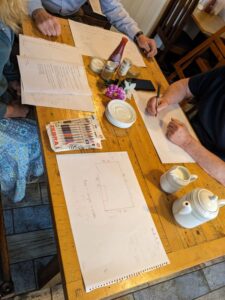
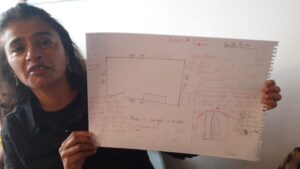
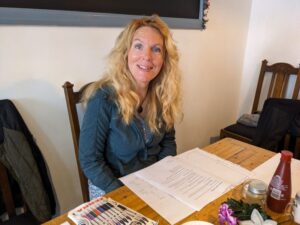
Our local forest school tutor, Remani delivered Campfire Cooking sessions, giving attendees a hands-on experience in preparing meals outdoors while building both numeracy confidence and teamwork. Each week she introduced a new method, from cooking with skewers and Dutch ovens, to wrapping biscuit mix in hazel leaves for the grill, frying elderflower in batter, and making cordials in pots.
Alongside cooking, participants learned how to budget for ingredients to feed a group of 12, compare shop prices with homemade alternatives, and scale recipes up for larger numbers. These activities combined practical maths with outdoor skills, helping everyone gain confidence in safely cooking outdoors while working together as a team.
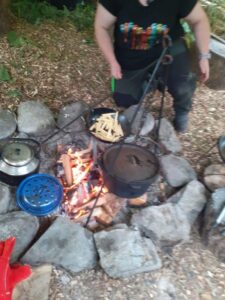
The Cave Studies sessions took place at Remani’s place. She demonstrated how maths connected with the natural world by using a single cave to explore in different ways, using practical skills to measure perimeters, areas, and surface areas, calculate angles of inclines, and estimate the heights of trees and cave formations (even trigonometry was introduced).
Adults recorded observations of flora and fauna, learning to represent populations in graphs and charts. Alongside this, elements of botany and geology were explored, showing how measurements relate to the environment. The key takeaway was gaining a deeper understanding of how natural features shape habitats and the relationships between the landscape and the plants and animals living there.
The Growing and Arranging Flowers sessions gave attendees a practical way to combine maths with creativity. Each week built on the last, teaching participants through planning and growing flowers by measuring distances for optimal growth, calculated areas for garden beds, rows, and pathways, and worked out soil volumes for raised beds.
Alongside gardening, design principles were introduced, helping participants apply geometry and spatial reasoning when creating balanced and symmetrical arrangements. By the end of the sessions, attendees had developed confidence in planning, calculating, and executing designs.
Each participant created their own floral arrangement, proudly displaying their work at the Old Courthouse exhibition and celebrating both their creativity and applied maths skills.
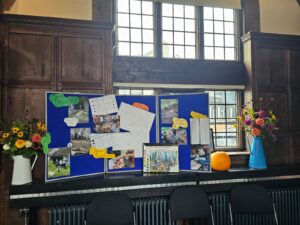
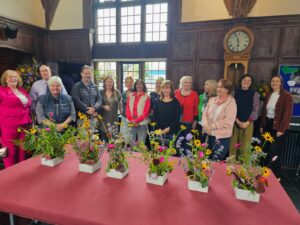
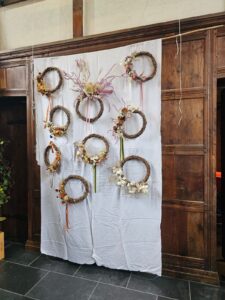

Each week I could see my skills growing, from planning and measuring to arranging flowers with confidence.


Creating my own floral display and showing it at the exhibition was exciting.


Who’d have thought I’d finally understand trigonometry through measuring the inside of a cave.


My favourite things were calculating angles and areas and exploring the cave.


From skewers to Dutch ovens, it boosted my confidence to buy my own.


From measuring ingredients to planning costs, every step involved maths. Combining this with outdoor cooking made it fun.


I already do my own decorating, and sharing the maths calculations with others gave them confidence to try out ideas that work in real life.


The step-by-step process helped. Seeing the calculations on paper, I could see how the maths connected to decorating a room.


The budgeting game showed me why I overspend.


Working with Shilpa made it easier—we also learned different ways of solving the same problem.



